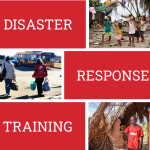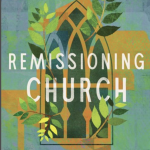If you’re using Gmail or the equivalent (seems like almost everyone has switched), you’re probably good to go. Many vendors (like Gmail) are fairly secure now, if you’re logging on to their server (and you trust their staff). Look for the “padlock” or “https” address in your browser’s URL web address box. We previously recommended Hushmail — and it’s still a great option, but we have to admit, Hushmail is looking a bit old-fashioned these days compared to Gmail. And since Gmail offers 10 gig of secure online storage for free — remind me again why we’re paying for Hushmail? :-)
For my own purposes, I refuse to switch to a web-based email solution like Gmail because I want to be able to even when I can’t find a source for Internet. (As I write this item on the road in Haiti, internet is nowhere to be found. Using Gmail or another web-based solution, I’d be dead in the water.) So I still use an email client like Outlook, queue my messages, then send them later when I’m near Internet. I realize I’m probably in the minority these days, but for my life, it still makes sense. If yours is similar, make sure you’re logging on to a secure email server. Am I wrong, or can I assume that all IMAP servers are typically “https” secure? Not all POP3 servers are. Check yours and take the necessary action. Or surround your entire computer with a secure “wall” by using a Virtual Private Network (VPN). StrongVPN
and
are both great solutions. StrongVPN seems to have better customer service. Not only will a VPN keep prying eyes from seeing your internet (as it leaves your computer all the way to your VPN-provider’s server), but it will also likewise secure your web-browsing as well. Find out where your VPN is based (for example, Sweden or Vancouver). If a secure route out of your sensitive field is all you need to “get into the clear,” then you’re golden. If you need end-to-end encryption with your home or office, look for a tech that can hook you up with a home-brewed VPN. Be prepared to manage the extra technical needs. As with everything else, sort all this out before you board the plane.












You can write and save Gmail emails locally on your smartphone and send them when Internet is available later on.
Also, check out google’s two-step verification. No one can log into your Gmail/YouTube/Google+ accounts without your password AND your smart phone. A special app (Google Authenticator) randomly generates a new 6 digit code every 30 seconds. This code is only available on YOUR smart phone!
Then, add a long password to lock your phone and Witopia VPN… You are all set to go!
Amen, Doug, about using an e-mail service that allows functioning while off-line. Eudora also works well, and a new version is available at eudora.com.
Thanks for the heads-up about the new version of Eudora. We used to publish Brigada using Eudora, way back when, but migrated to Outlook sometime later. We’ll have a look!
I have used both StrongVPN and Witopia. But Astrill has won me over. Hands down, it’s better than the others, cheaper than StrongVPN, with more available options.